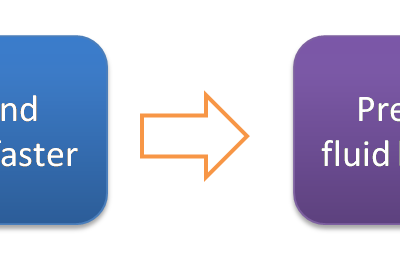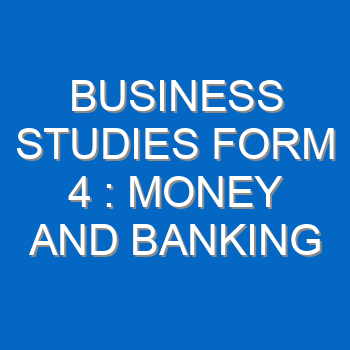Share this:
THE JUDICIARY QUESTIONS AND ANSWERS
i) Interpreting the law ii) Settling disputes between parties.
iii) Protecting the constitutional rights and freedom of individuals against encroachment, iv) Administering justice/punishing criminals.
- There is a separate system of command for the judiciary unlike other government departments that are headed by the public service commission. The chief justice heads the judiciary.
- Settling disputes between parties.
- Protecting the constitutional rights and freedom of individuals against encroachment.
- Administering justice/punishing criminals,
- List five terms of service of judicial officials.
- There is separate system of command for the judiciary unlike other government department that are headed by the public service commission
The chief justice heads judiciary.
- The judiciary service commission does the appointment of the Magistrate. The president in M… consultant with the Judiciary
Service Commission appoints the judges.
- Judges and magistrates are protected against any form of victimization and molestation by judicature act. iv) The judges are bound by the oath of allegiance to perform their duties without fear or favour and
ill-will.
v) A judge can be removed from office only due to inability to perform the functions of his office. This means that nobody can dismiss a judge at will. His tenure of office is fairly long, the retirement age being seventy – four years, vi) Salaries and allowances of judges are fixed by statues and are not subjected to be reviewed or debated upon in parliament. vii) Judges and Magistrates are not answerable to the entire executive.
This allows for impartiality in making judgments.
- Explain the process of law making in Kenya.
i) The bill is prepared by the Attorney General’s chambers or by law if it is private members bill, ii) The bill is introduced in parliament during the first reading either by the attorney General or the relevant Minister to acquaint the members with the
Bill and seek their approval, iii) During the second reading the bill is discussed by members in details and amendments are suggested. A vote is taken and if the majority approves the bill it goes to the next stage, iv) A committee of the whole house discusses the bill in details, makes amendments and incorporates those suggestions made during«the second reading.
- A report is made to the house regarding the amended bill.
- The bill that goes through the third reading, during this stage some discussions of the bill takes place. A vote is taken and if majority of the members supports the bill it goes to the next stage.
- The bill is taken to the president for his assent after which it becomes a law and is published in the Kenyan gazette.
- The Attorney General is the
chief legal adviser to the government.
- Chief state prosecutor iii) Interprets the laws of Kenya iv) Drafts government bills
v) Serves as ex – official Member of Parliament
- Describe the structure of the court system in Kenya.
- The judicial structure in Kenya consists of a system of courts which are managed hierarchically from the lowest to the highest level. ii) The District magistrate’s court. This is the lowest court in Kenya, which is charged with the responsibility of trying civil and criminal case§ within the district.
iii) The Kadhi’s court. This is parallel to the District Magistrate court which has powers over all the resident magistrates and Districts Magistrates. It supervises and oversees the work of other courts in the country, iv) The High Court of Kenya – This have unlimited jurisdiction over civil and criminal stemming from any part of
- The Court of Appeal – it is the highest court in the country. It listens to appeals from any court in Kenya.
- Other court e.g. Industrial court, tribunal etc
- What is the main role of the Attorney General as an E – official member of the parliament?
Advises the parliament and the government on the matters of law
- a) Describe three ways in which the judiciary ensure fairness in the
administration of justice.
i) The Judicial Service Commission ensures that Judges and
Magistrates discharged their duties without interference. ii) Suspected criminals are held innocent until proved guilty in a court of law – giving them a chance to be heard by the courts. iii) Persons founds administering mob justice are liable to prosecution.
- Suspected criminals are entitled to legal representation through an advocate of High Court,
- Suspected criminals of serous crimes such as murder are guaranteed free government services of being represented by advocates, vi). Persons not satisfied with the verdict are allowed to appeal a higher court.
b) Explain six factors that may undermine the administration of justice in Kenya.
- High incident of crime cause delay in the hearing and finalizing of cases.
- Corrupt practices by some of the judiciary personnel and police officers undermine fair administration of justice, iii) Political interference – some suspected criminals may be freed on orders from above without following the laid down procedure.
- Lack of awareness by the general public on their rights and legal procedures,
- Inadequate personnel and equipment for detecting and investigation acts of crime – this may lead to inadequate evidence against acts of crime. vi) Some of the laws are too colonial/foreign to be relevant to the
Kenya context, vii) Unwillingness of some members of the public to give information and also acts as witness, viii) Use of out – dated customary laws that have not been harmonized with current situation makes their proper interpretation difficult.
- Poverty makes it difficult for some people to hire professional services of lawyers/advocates,
- Miscarriages of constitutional privileges.
6. a) Describe the structure of the court system in Kenya.
- District magistrate’s Court is the lowest in the structure. These are found at District level.
- Kadhi Court. It is at the same level as the District Magistrate Court can be heard at the High Court of Kenya and Court of Appeal, iii) Resident Magistrate’s Court is the second lowest in the court system but it is the highest court in the province.
- Chief Magistrate’s Court is the highest Magistrate’s Court in Kenya system
of courts.
- High Court is above the magistrate’s Court in Kenya. The Chief heads it.
- Court of Appeal is the highest Magistrate’s Court in Kenya. The
Chief Justice heads it.
- Special court/tribunals e.g. rent, industrial and business. u
b) Explain the functions of the High court of Kenya.
- The High Court is a constitutional court, which interprets the constitution to determine whether the dispute is constitutional or not.
- It ties both criminal and civil case/handling case involving large amount of money, iii) It can listen to cases from all over the country, iv) To correct mistake made in decision by the lower court,
v) To hear appeal from decision of professional Depilatory Tribunal
e.g. the Law Society of Kenya and the Kenya Medical and Dentist Association.
- Hear appeal from the Kadhi Court.
- It acts as court appeal for cases from Residents and Chief
Magistrate’s Court, viii) It deals with petition arising from elections (Presidential and
Parliamentary)





